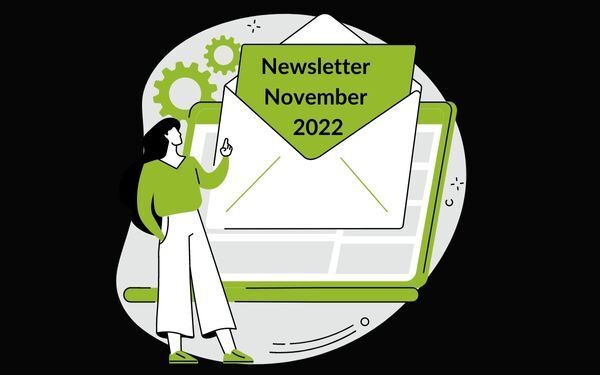Writing effective web copy in 2020: keywords, content strategies and more
We wrote a blog post previously about keyword research . Identifying keywords is the first step in creating optimised web content, the next is writing engaging content around those keywords.
What you really need to know about copywriting for SEO
There are two essential ingredients to effective web copywriting, you need to remember who you’re writing for and what issue you’re trying to address.
1. Customers come first…always.
Everything on your website, blog, social media and any other communication channel should be written with your customers in mind. Using keywords is important, but your content has to be structured around your audience and what they want to read. It’s an important distinction and an area people often go wrong. As The Content Factory summarise, when you produce web copy you’re not writing for Google’s algorithms , you’re writing for people.
2. Identify a problem and solve it
Most people using search engines are trying to answer a question or meet a need. They’re looking for something, and effective content identifies what that is and answers that need. Renowned marketer and bestselling author Neil Patel considers this one of the key goals of copywriting: your content needs to solve a particular problem. The content you write has to be meaningful and deliver a message that people want or need to read.
Quality is the most important factor in writing content for SEO
Focusing on your customers as readers and identifying the purpose of your content is key. If you’re writing content just to get keywords on your website people will know and so too will search engines. Google’s Matt Cutts speaking at the 2017 SXSW conference said:
‘We are trying to makeGoogleBot smarter, make our relevance better, and we are also looking for those who abuse it, like too many keywords on a page, or exchange way too many links or go well beyond what you normally expect. Quoted on Wordstream.com
The dangers of keyword stuffing
The practice of ‘keyword stuffing’ (artificially cramming your text with keywords) alienates readers and negatively flags your content with search engines. The reason is that it looks unnatural, and gives readers a poor user experience. Yoast recommends a keyword density of between 0.5% and 2.5% , more than that and you risk being flagged as keyword stuffing.
Keyword strategies for great web content
With warnings over keyword densely and advice not to neglect quality and your human audience, it’s easy to see why some people are unsure of how to utilise keywords in their content. But using keywords effectively remains one of the most important tools in SEO.
Keywords and on-page SEO
Your web page consists of a number of elements including the content on your page, the URL (e.g. www.quayclick.co.uk ),title and meta description. Your title and meta description are the little extracts that appear in search listings.
In the image below, the bold heading in purple is the title, the link in green is the URL and the snippet of text below is the meta description.
All of these different elements have a role to play in helping your content to rank in search listings. Using your keywords in each of these, as well as in the main body content of your page will help search engines to identify what your content is about. In the example above, 'SEO' appears in the title, URL and meta description, this clearly identifies to Google and other search engines that the page is about SEO.
Using keywords in your web content
Your keywords should be used across all aspects of your content. Webzine SearchEngine Land advocate using keywords to create enticing and actionable titles that also incorporate variations such as plurals, synonyms and abbreviations. Using keywords naturally is perhaps the most important factor. Your audience should be able to read your content without becoming aware of the repeated use of the same word or phrase.
Types of web content
Keywords are most commonly used in website content, including product and service pages, blog posts and articles. However, Wordstream has a list of different content options for utilising keywords to improve your SEO , these include lists, guides, videos, infographics, slideshows, glossaries and directories.
SEO testing, analytics and monitoring
An SEO strategy is a long-term approach to increasing your discoverability online. Any content activities you undertake require monitoring and measurement to test for their effectiveness. Online web tools like
SEMrush and
SEOptimer can help with giving you a snapshot feedback on the effectiveness of your content. Monitoring your position in search engine listings is another measure.Tracking your performance allows you to refine your approach to producing content and invest your time in areas that are proven to be effective.
SEO: a holistic strategy
Producing keyword-rich content alone isn’t enough to improve your SEO. SEMrush provides a useful insight into the many factors that affect search engine listings . Metrics around user behaviour come out as the most important factors. They report that direct website visits, time on site, pages per session and bounce rate have the most significant impact on search engine rankings. Backlinks also feature prominently, with keyword measures being at the lower end of the spectrum. Keywords are one of the areas companies focus on as they’re probably the easiest factor to influence.
Get an in-depth review of your website with our free SEO audit report
Our free SEO audit report provides you with detailed feedback on issues that may be affecting your website’s performance. It's a full diagnostic assessment based on your website and is available free. The report is a really useful guide to seeing where you may need to make improvements. If after reading through your report, you need help interpreting or actioning the findings then we are always happy to help.
Content creation and SEO support in Exeter
Creating engaging content for your website and social media accounts takes time and to rank highly with search engines you need an extensive content creation strategy. We’re digital marketing specialists and can build a coordinated SEO and content strategy for your business. Our experienced copywriters can produce keyword-rich copy tailored to your target audiences. If you’d like to find out more about how QuayClick could help with SEO and content creation please contact us in Exeter today.




QUICK LINKS
QC Newsletter sign-up
We will get back to you as soon as possible.
Please try again later.
All Rights Reserved | QuayClick Marketing Ltd
We’re a website design and digital marketing agency based in Exeter. We help businesses grow online and have over 20 years of experience in Web Design. We offer several inbound strategies, including paid search and SEO. In addition, our content team can help with copywriting and email campaigns.












